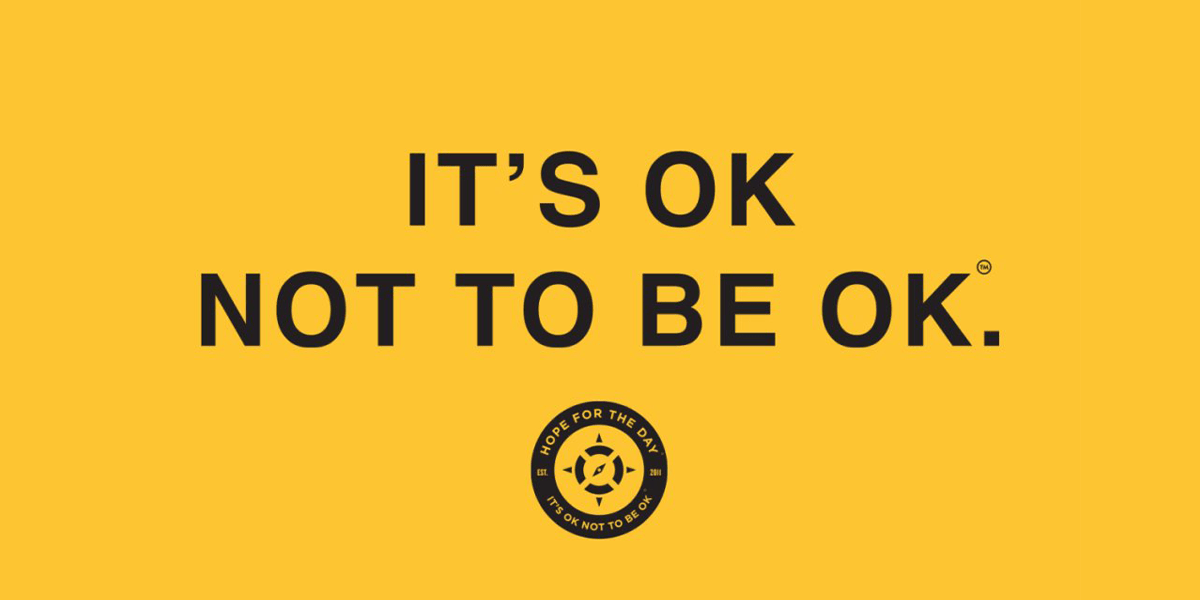Mental Health. Why is it important? Why are you hearing so much about mental health these days? It’s relevant right now because this month, May, is Mental Health Awareness Month. So let’s talk about it!
What is mental health? Mental health refers to our cognitive, behavioral, and emotional well-being. It is all about how people think, feel, and behave. People sometimes use the term “mental health” to mean the absence of a mental disorder. Mental health can affect daily living, relationships, and physical health. Mental wellbeing describes your mental state – how you are feeling and how well you can cope with day-to-day life. Our mental wellbeing is dynamic. If you have good mental wellbeing you are able to feel relatively confident in yourself and have positive self-esteem. Additionally, you can feel and express a range of emotions.
It’s also our ability to handle the many things that come our way. Our mental health is something that is not commonly talked about, and therefore seems to have a lot of grey area around the subject. This makes it even more important to be talked about. The stigma surrounding mental health has built a wall around the topic. Conversations on mental health would end before they even began. The code of silence was (and still sometimes is) real. Let’s work here to break down that wall.
It’s important we start the conversation because maybe someone might never know that their mental health is connected to their physical health. That’s right; the correlation between an upset stomach and racing thoughts is valid! For many, it’s a relief to know that what they’re feeling is normal. For most, the only way to come to this realization is by talking about it and listening to others talk about it.
Stressors in our lives will have a substantial impact on our mental health. As college students, we’re well accustomed to stress. I, for one, excel in the fine art of procrastination. I call it an art because the amount of finesse it takes to turn-in an assignment thirty seconds before the submission deadline is one that is is gained only through rigorous practice. I can confidently say this negatively affects my mental health. In our presentation, we talked about the stress curve. I’m sure I won’t be the first to admit that I often find myself in the “zone of delusion”. I may think that I’m doing my best work when in reality I’m not. This kind of stress may only be short-term, but that still is impacting my mental health, as mentioned.
We know that both short-term and long term stress will impact our mental health. If you’re familiar with Hope For The Day (a non-profit supporting proactive mental health awareness and suicide prevention), you might know a little about their soda bottle example. If none of this rings a bell for you, allow me to explain. Think of your mind like a bottle of soda. Stressors of the day, or the month, or the year, etc. all build pressure in our “soda bottle” mind. Without any relief, the pressure would build and we would explode. Think of that stage as a crisis stage requiring immediate intervention. We all have different thresholds. To alleviate some of this pressure we need to make use of “valves” – things that help us decompress and as the word suggests, valve! Personally, I find that making art or working out has become valuable ways to let off pressure in my soda bottle mind but it’s important to understand the actual act of self-care versus coping. They are close, though not identical. Coping strategies help us in the short-term. Long-term success is made easier when we develop healthy self-care strategies. Self-care and coping strategies work together to further improve our mental health and wellbeing.
Self-care can do wonders in the short term but not every human struggle can be relieved with a simple act of self-care. Medically diagnosable disorders are more complex than just the average stressful day at the office. Biology plays a major role in mental health. A simple prescription can help balance the body’s natural chemicals when something may be off. There’s a common idea that taking medicine is weak. I’m here to tell you that’s the furthest thing from the truth. You’re not weak for taking an aspirin when you have a headache and you’re not weak for taking an anti-depressant when there’s a chemical imbalance in the brain. If we saw someone walking around with a broken ankle we wouldn’t tell them to shake it off; we’d get them professional medical care. We should be doing the same for mental health. I’m going to borrow a well-known phrase here, (another HFTD plug, sorry.) “It’s ok not to be ok.”
As always, all of us at Health Promotion & Wellness are here to support you and if you ever need anything, please, reach out. Our contact information is found on our website where you can set up an appointment or just give us a call and say “hey!”. Outside of DePaul Resources, the National Suicide Prevention Lifeline can be reached at 1-800-273-8255, but if you or someone you know is experiencing an emergency and in need of immediate help, dial 911.
By breaking the silence we tear down the stigma surrounding mental health. Be proactive. Be productive. Start the conversation.
You can view the corresponding Wellness Wednesday workshop video here!


